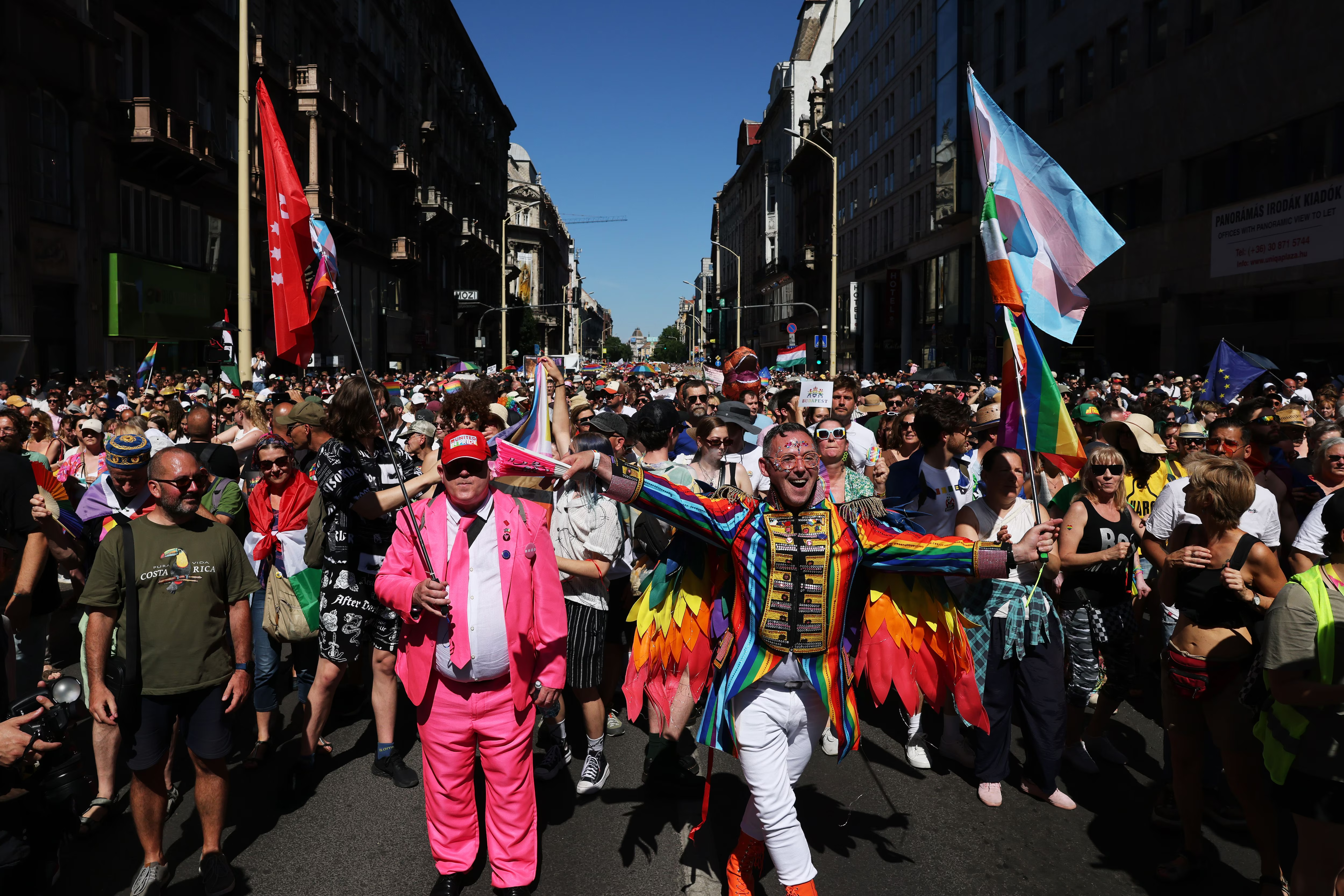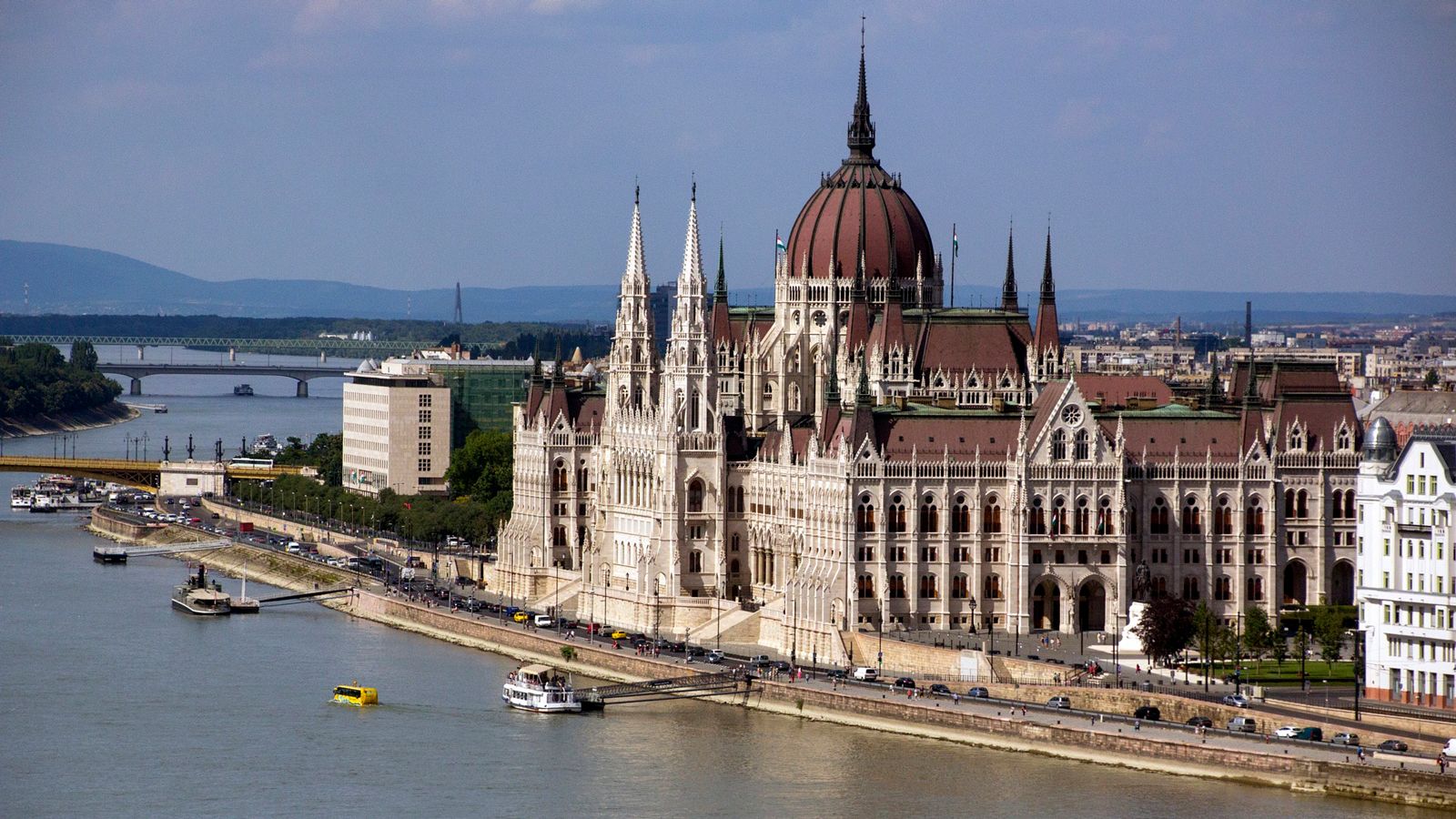Massive Show of Defiance in Budapest
In a stunning act of civil disobedience, around 100,000 people flooded the streets of Budapest on June 28, 2025, for the largest LGBTQ+ Pride event in Hungary’s history. This monumental gathering unfolded in direct defiance of a government ban issued by Prime Minister Viktor Orbán"s far-right regime, further showcasing the resilience of the LGBTQ+ community amidst oppressive state-sanctioned discrimination.
Government"s Authoritarian Grip Tightens
The ban on the Pride march, rooted in a recent constitutional amendment that prioritizes the supposed rights of children over fundamental freedoms such as the right to assemble, represents a stark escalation in Hungary"s authoritarian crackdown on dissent. As reported by Reuters, the government threatened participants with fines of up to 200,000 Hungarian forints (approximately $586) and even prison sentences for those who dared to attend.

Thousands march at Pride in Budapest, defying repressive ...
Pride as a Symbol of Resistance
Marchers expressed that this event transcended LGBTQ+ rights; it was a vital stand against the erosion of democratic freedoms in Hungary. One participant, Blanka Molnár, articulated this sentiment, stating, “This isn’t just about LGBTQ+ rights, it’s also about the right to assemble and about standing up for each other and not allowing the government to oppress us.” Such declarations highlight the inherent connection between the fight for LGBTQ+ rights and broader civil liberties, emphasizing that the struggle is fundamentally about human dignity and justice.
Orbán"s Administration Faces Growing Opposition
The overwhelming turnout for Pride stands as a significant rebuke to Orbán’s dwindling popularity amid rising opposition forces. According to The New York Times, this mass mobilization serves as a clear indication that the Hungarian populace is increasingly unwilling to accept the government"s oppressive policies. Not only does this event signify a moment of pride for the LGBTQ+ community, but it also signals an awakening among the general public, which is fed up with the authoritarian tendencies of their leaders.

Inside the Hungarian Parliament Building
Legal and Social Implications of the Crackdown
The implications of Hungary"s legislative actions extend far beyond the immediate context of Pride. The government’s persistent targeting of LGBTQ+ rights — including bans on same-sex adoption, marriage, and transgender rights — reveals a systematic effort to marginalize and dehumanize a segment of the population. This strategy, coupled with threats of police intervention and surveillance during the march, raises serious questions about the future of democracy in Hungary. As articulated by András Faludy, one of the marchers, this “hysteria” surrounding LGBTQ+ rights exposes the fragility of civil liberties and the urgent need for a collective stand against governmental overreach.
The Budapest Pride march not only highlights the need for LGBTQ+ visibility and rights but also underscores the critical importance of civic engagement in the face of tyranny. This event serves as a rallying cry for all citizens concerned about the state of democracy in Hungary, reminding us that the protection of civil rights is an ongoing struggle that requires vigilance and fortitude.


![[Video] Hillary Clinton: Women's equality is the unfinished business of the 21st century](/_next/image?url=%2Fapi%2Fimage%2Fthumbnails%2Fthumbnail-1765096256004-4wn0xo-thumbnail.jpg&w=3840&q=75)

![[Video] Erdogan: Ethnic and religious diversity should not divide Turkey](/_next/image?url=%2Fapi%2Fimage%2Fthumbnails%2Fthumbnail-1764249656004-ion8m-thumbnail.jpg&w=3840&q=75)


![[Video] Gunfire between Iraqi security forces and Sadr militias in Baghdad](/_next/image?url=%2Fapi%2Fimage%2Fthumbnails%2Fthumbnail-1768343508874-4redb-thumbnail.jpg&w=3840&q=75)
